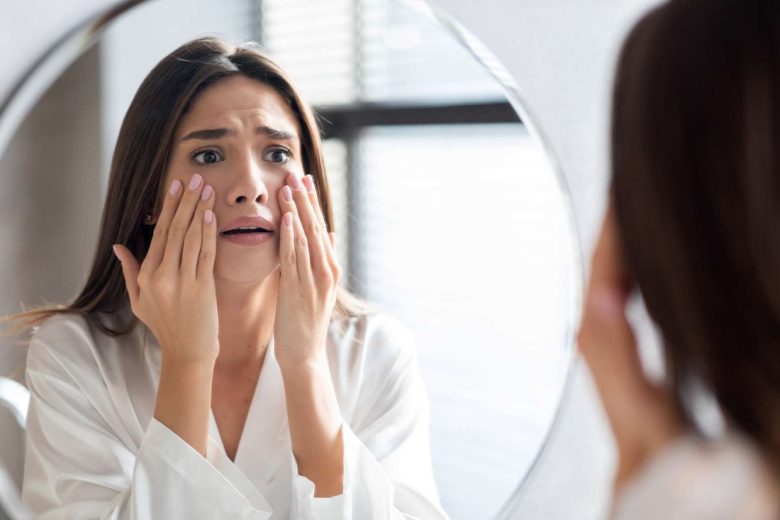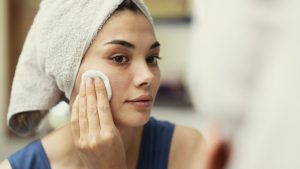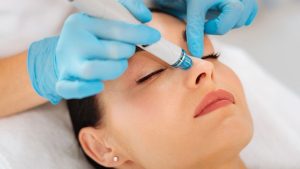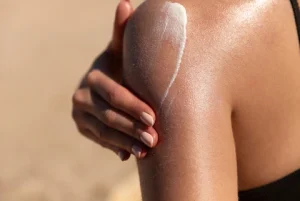The last two years have seen a spike in the popularity of DIY skincare. It is not difficult to understand why so many people wish to create their own skincare solutions, considering the sheer number of TikTok videos, blogs, and Instagram Reels that promote at-home remedies. With a multitude of natural ingredients available, ranging from honey to coffee scrubs, the idea of crafting an innovative skincare routine is captivating.
However, amid all the glamor lies a much more perilous side—one that misinforms, uses inadequate techniques, and can cause irritation, imbalance, or worse, chronic damage to your skin. This article will outline the risks that accompany DIY skincare, the importance of professional insight, and the steps that promote skin health in the long run.
Rise of DIY Skincare: What Makes People Enthusiastic About It?
The sheer concept and beauty of self-care promises seem not only inexpensive but also instructive. The common perception that people have is that DIY skincare allows them to escape the use of potent chemicals and, to some extent, economic strain while addressing their individualistic skincare struggles. Beauty influencers and social media fads have shared a myriad of DIYs that seem attainable with some help from the internet. Fans believe that radiance can be easily harvested by merely having a few conveniently available pantry items within reach. However, people who appreciate skincare tend to lack one very important thing acquainted with beauty: knowing how their skin essentially functions and the science that goes into developing safe skincare products.
The Dangers of Following Online Trends Blindly:
Of the many disadvantages of DIY skincare, misinformation stands out the most. Many unverified social media accounts suggest drastic and often dangerous ingredient substitutions, such as using turmeric for acne scars and baking soda for blackheads. Scientific evidence does not back these “hacks.” The absence of guidance from an expert puts people at risk of following advice that may be detrimental to their skin. Influencers are not representatives of the general public and do not account for the unique differences in individual skin pH, types, and sensitivities as they promote the remedies they endorse.
Most Common Kitchen Items That Pose A Risk Skinwise:
Although the thought of utilizing items straight from the kitchen may be enjoyable, lots of kitchen staples are overly abrasive or dangerous for use on skin. For example, lemon juice is often marketed as a brightening remedy; however, the citric acid present in it can cause skin irritation and increase photosensitivity.
In the same way, baking soda, like popular “exfoliants,” also disrupts the pH level of your skin, which makes the skin vulnerable to redness and damage. Also, another favorite, apple cider vinegar, when used undiluted, can lead to burns. Even the most benign ingredients, like sugar scrubs, can inflict micro-tears on the skin, which will erode the protective barrier over time. These ingredients perform poorly alongside each other, making DIY remedies potentially perilous without sufficient knowledge.
The Need for Expertise in Formulation: New Challenges
Formulating skincare products is a lot more complicated than most people give it credit for. A professional skincare line employs a staff of dermatologists, chemists, and product developers who work in conjunction to ensure the safety and efficacy of the products. Critical considerations like pH, ingredient stability, and preservation are painstakingly calculated, which is nearly impossible to do at home. Take vitamin C, for instance: it’s touted as one’s best bet for brightening the complexion, but it is rendered useless once it is exposed to light or air. Do-it-yourself plans, lacking professional-grade stabilizers or knowledge of inter-ingredient relationships, can result in wasted effort or, worse, skin damage.
How the Inaccurate Method Can Cause Dangerous Reactions:
When using new ingredients, patch testing is one of the steps that must not be skipped. Unfortunately, it is the step least paid attention to in skincare DIY. People tend to use their creations without checking how their skin would respond to it. Inaccurate testing can cause redness, itching, or swelling. Ingredients that are considered benign may still result in allergic reactions. In the absence of a knowledgeable guide, minor mistakes can become disasters.
Ignoring Skin Conditions:
Skincare DIYs often lack the correct dosages necessary for treating particular ailments. Trying to adapt professional acne, eczema, or hyperpigmentation treatments to do-it-yourself techniques is likely to complicate them further. From an overzealous application of homemade concoctions to the pores and skin’s natural barrier being too harsh, there are countless ways these pores and skin therapies, with the right intention, can go wrong—and indeed, go amiss more often than not. Skin conditions need specialized treatments that account for the nuances of health and dermatological science. Only dermatologists or specialized skincare products can provide this assurance.
The Cumulative Effects of DIY Practices: Long-term Damage
While the threat posed by do-it-yourself skincare may not be visible after a use or two, the impact of unsafe practices can be drastic. Acidic substances such as lemon juice, for instance, or harsh exfoliants like sugar scrubs—if used repeatedly—can weaken the skin barrier, exposing it to sun damage and chronic irritation over time. The long-term effects of this may include premature aging. Compromising the skin barrier comes with years of recovery, and in this regard, inexpensive do-it-yourself skincares come with the highest risks—and the most savings they claim are illusory.
When Can A Dermatologist Help: Seeking Professional Advice
With active skin problems or the damaging results of attempt-it-yourself skincare, one is advised to get assistance from a professional. Dermatologists are specialized professionals who can assess your skin type, determine any dermatological conditions, and prescribe carefully tailored treatment plans. Their approach provides a dermatological roadmap that is nutritionally safer and beneficial for long-term results. Many times, professionally seeking guidance saves one both time and money because they are provided with timely, tested, efficient, and helpful solutions, unlike the series of trial and errors opted for through personal efforts.
Safe Products and Skincare Routines for Professionals:
Instead of putting efforts into preparing your skincare products at home, consider the ready-to-use, inexpensive products suggested by professionals that have gone through comprehensive testing. CeraVe, La Roche Posay, and even The Ordinary are offered for different skin types, with considerations based on scientifically proven standards. If the thought of using herbs as remedies excites you, then search for a product that uses homemade solutions but mixes them with professional formulations. In this way, your skin will stand to gain without dauntless risks. Always search for products formulated specifically for your skin type and skin considerations, and make it a point to patch before presenting new additions to your routine.
Finding the Balance Between Reality and Fiction:
While all DIY skincare activities can be harmful, none of them should be categorized as dangerous in their entirety. For example, it is widely accepted that the use of cold cucumber slices to relieve eye puffiness is effective, even if only temporarily. It should be acknowledged, however, that this remedy has its limitations and is incapable of addressing pore-clogging acne conditions or the genetic dark circles under one’s eyes. Similarly, coconut oil is widely thought of as a moisturizer, which, for the life of me, I cannot understand, as logic dictates that it clogs pores. Therefore, its use on acne-prone skin has proven to be detrimental because it leads to increased breakouts. Any other DIY attempts should be backed by a professional, or at the very least, good sources should be used.
The Importance of Relying on Scientific Evidence:
Taking care of one’s skin is important to everyone in more than one way. Depending on the individual, seeking out a personal approach can help make the skincare experience private and intimate. At the same time, however, the degree of risk involved in the practice can be overwhelming and span from misuse of ingredients to damage—emphasizing the need for more thoughtful choices and risk mitigation.
There is much more risk and damage dealing with unapproved products than there is with relying on expert guidance. Remember, dermatologists must tailor skin products to their clients’ skin type and clinically prescribe them, ensuring their safety and effectiveness. Always remember that your skin needs the utmost care; the rest can be dealt with by professionals.
FAQs:
1. Is DIY skincare covenanted to be harmful to your skin?
Not. In fact, remedies such as an aloe vera gel are a safe substitute for calming burns or inflammation. Most DIY skincare products lack scientific support; therefore, it requires a fair deal of caution and consideration before any use.
2. Can natural ingredients like honey or turmeric cause reactions?
Yes, allergies or hypersensitivity can occur with natural components. Always be sure to consult a professional and perform a patch test prior.
3. Why is baking soda bad for the skin?
Baking soda can be irritating to the skin due to altering the skin’s natural pH level, and repeated use will lead to irritation, and dryness.
4. Is it safe to use essential oils in DIY skincare?
Due to the high concentration of essential oils, they should always be used in moderation; otherwise, they can cause burns, allergies, or other reactions.
5. Are DIY scrubs effective for exfoliation?
DIY scrubs are effective for exfoliation due to their coarse ingredients but are counterproductive due to the micro-tears the sugar can inflict on the skin barrier—a professionally formulated scrub is preferred.




